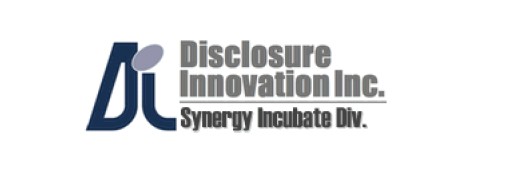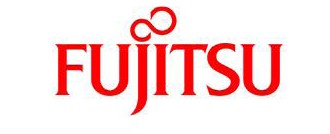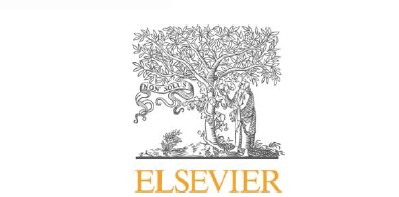
Asia-Pacific Conference on Library & Information Education and Practice
(A-LIEP 2009)
Preparing Information Professionals for International Collaboration
6-8 March 2009, University of Tsukuba, Japan
Panel (March 6, 2009: Friday: 14:30-16:30) Moderator: Shigeo Sugimoto
Collaboration of Information School in Asian and Pacific Region
- Rowena Cullen (School of Information Management, Victoria University of Wellington, New Zealand)
- Christopher Khoo Soo Guan (Wee Kim Wee School of Communication and Information, Nanyang Technological University, Singapore)
- Ronald L. Larsen (School of Information Sciences, University of Pittsburgh, USA)
- Koti S. Raghavan (Indian Statistical Institute, Bangalore, India)
- Kulthida Tuamsuk (Khon Kaen University, Thailand)
- Qingshan Zhou (Department of Information Management, Peking University, China)
Plenary Session (March 6, 2009: Friday: 13:15-14:15) Moderator: Chihfeng P. Lin
Establishing Communities of Practice: A Practice-Based Model of Continuing Education for School Librarians and Teachers
/ Violet H. Harada
Perceptions of Lis Graduate Students of Peer Learning
/ Shaheen Majid; Rakiba Reaz Tina
Track A: Education (1) (March 7, 2009: Saturday: 9:30-11:00) Moderator: Sajjad ur Rehman
A Study on the Requirements for Launching E-Learning Programmes to Lis Education in Japan: Challenge of DEPLIS
/ Mitsuhiro Oda; Sachiko Nakajima; Makoto Setoguchi
Knowledge Management Education in Library and Information Science Schools: An Exploratory Study
/ Md. Roknuzzaman; Katsuhiro Umemoto
LIS Education and the Changing Face of East Asian Librarianship
/ Noriko Asato
Challenges and Problems of Library and Information Education in India: An Emerging Knowledge Society and Developing Nation of Asia
/ I.V. Malhan
Track B: Practice (1) (March 7, 2009: Saturday: 9:30-11:00) Moderator: Yushina Mansor
"Learning to Speak Web 2.0": Teacher-Librarians Playing with 21st Century Technologies
/ Joanne De Groot; Jennifer L. Branch
Competition or Cooperation in an Era of Change: Tensions Between School and Public Libraries in Alberta, Canada
/ Joanne De Groot; Jennifer L. Branch
Perceptions of Education, Learning and Access: Public Libraries and the Internet in Singapore
/ Adrian Heok; Brendan Luyt
Perceptions of the Impact of User Education and Information Literacy on the Use of Information Resources: A Nigerian Perspective in the Information Age
/ Manir Abdullahi Kamba
Track C: Research (1) (March 7, 2009: Saturday: 9:30-11:00) Moderator: MeiMei Wu
A Bibliometric Analysis of Asian Authorship Pattern in JASIST, 1981-2005
/ Han-Wen Chang
Towards a Research Agenda for LIS in the East and Southeast (SE) Asian Region: Some Preliminary Thoughts
/ Kerry Smith
Investigating Multi-Linguistic Information in University Libraries'Web Pages
/ Takayuki Matsubara; Kumiko Kondo; Takafumi Suzuki; Shuntaro Kawamura; Maniko Katsura
Issues in Ontology Design for a Clinical Decision Support System
/ Christopher S.G. Khoo; Jin-Cheon Na
Keynote (March 7, 2009: Saturday: 11:15-12:15) Moderator: Shigeo Sugimoto
Turning Point of Library Activities
/ Makoto Nagao (Director of National Diet Library, Japan)
[Abstract]
Libraries are confronted with the age of information technology and are forced to go toward digital library system. They have to digitize not only library materials but also capture web information. They have to preserve digital materials for a very long period, and give convenient and high-quality retrieval services to users.
To go in this direction it is essential to foster education and training activities of librarians in information science and software technology, particularly natural language processing technologies, their software construction and maintenance. The paper will discuss these problems in some details.
Track A: Education (2) (March 7, 2009: Saturday: 14:30-16:00) Moderator: Koti S. Raghavan
Internationalization of LIS Program Through Strategic Partnership
/ Yushiana Mansor; Nooraini Ismail
Restructuring Library and Information Science Education Toward Knowledge Informatics Education: A Case of the Undergraduate Program at the University of Tsukuba
/ Hirotoyo Ishii; Chieko Mizoue; Atsushi Toshimori; Norihiko Uda; Hidehiko Hasegawa; Makoto Matsumoto; Shinichi Nakayama
Library and Information Science Education at Sultan Qaboos University in Oman: Preparing Information Professionals for Leadership and Management Roles
/ Mohammed Nasser Al-Suqri
LIS Curriculum Review Using Focus Group Interviews of Employers
/ Khalid Mahmood
Track B: Practice (2) (March 7, 2009: Saturday: 14:30-16:00) Moderator: Rowena Cullen
Does the National Diet Library Have Pornographic Books?
/ Akemi Kikawada; Keita Tsuji
Empowering Information Professionals: A Training Programme on Information and Communication Technology (EIP-ICT) from UNESCO Bangkok and Japanese Funds in Trust (JFIT)
/ Susanne Ornager; Tamiko Matsumura
Freedom of Access to Information - Thoughts, Actions and Culture of Library Staff in Fiji
/ Gwen Noeline Mar
Track C: Research (2) (March 7, 2009: Saturday: 14:30-16:00) Moderator: Christopher Khoo Soo Guan
An Analysis of Reading Profile of Generation-X in Singapore
/ Gladys Low; Abdus Sattar Chaudhry
Print Media and Modern Subjects: A Transcendental Examination
/ Bin Umino; Kyo Kageura; Shinichi Toda
Roles of the Hospital in Support of the Right of Reading - From Investigation in 2007 of Japanese Hospital Patient's Library -
/ Minoru Maeda
Using Evaluation Grid Methods and Think Aloud Methods to Identify Undergraduate Students' Image of a Desirable Bookstore
/ Fukuji Imai; Shuntaro Kawamura
Track A: Education (3) (March 7, 2009: Saturday: 16:30-17:30) Moderator: Yumiko Kasai
Families, Technology and Library Education for Public Librarians: Promoting Use, Promoting Understanding Across International Boundaries
/ Susan E. Higgins
An Evaluation of the Graduation Papers at the Faculty of Library and Information Science (FLIS), Hanoi University of Culture (HUC), from 2004 - 2008
/ Nguyen Cuong Linh
International Collaboration Between Schools of Librarianship and Information Studies: Current Issues
/ Ian M. Johnson
Track B: Practice (3) (March 7, 2009: Saturday: 16:30-17:30) Moderator: Danuta A. Nitecki
Institutional Repositories and the Role of Academic Libraries in Scholarly Communication
/ Rowena Cullen; Brenda Chawner
Qualitative Evaluation of a Polytechnic Library as a Learning & Social Hub
/ Jaclyn Teo; Serena Tan
Development of a Strategic Knowledge Management Model for Thai Universities
/ Jutharat Sarawanawong; Kulthida Tuamsuk; Chollabhat Vongprasert; Jiraporn Khiewyoo
Track C: Research (3) (March 7, 2009: Saturday: 16:30-17:30) Moderator: Kerry Smith
Effect of Librarian Certification on Knowledge and Motivation of Japanese Librarians
/ Keita Tsuji; Fuyuki Yoshikane; Kyo Kageura
The Correlation Between Library & Information Education and Outsourcing in Academic Libraries
/ Sho Sato; Hiroshi Itsumura
Development Concept for School Librarianship in the Republic of Croatia
/ Jasmina Lovrincevic; Dinka Kovacevic; Marija Laszlo
Track A: Education (4) (March 7, 2009: Saturday: 17:45-19:15) Moderator: Shaheen Majid
The Role of the Business Librarian Training Program in the Business Support Services Provided by Public Libraries
/ Seiichi Saito; Makiko Miwa; Shunsaku Tamura; Yumiko Kasai; Nozomi Ikeya; Mika Koshizuka
Training New Generation Information Workers: The Entry Level LIS Degree Program in India
/ K. S. Raghavan; Kaushal. Giri
A Model for Dynamic Curriculum Development System for Advanced Courses Through Knowledge Management in Academic Library
/ Sarmistha Dutta
Track B: Practice (4) (March 7, 2009: Saturday: 17:45-19:15) Moderator: Hiroya Takeuchi
The Integration System for Librarians' Bibliomining
/ Jiann-Cherng Shieh
From the Viewpoints of People'S Demand of Information and Social Activities to Discuss the Difference Between Public Library and Internet Services
/ Nei-Ching Yeh
The Integration of Information Literacy into Web-Based Tutorial with Librarian - Faculty Partnership
/ Wawta Techataweewan; Kuntpong Woraratpanya; Charan Sanrach
Experiences on Recruiting and Training Library and Information Management (LIM) Students in Cantho University, Vietnam
/ Huynh Thi Trang
Track C: Research (4) (March 7, 2009: Saturday: 17:45-19:15) Moderator: Yuriko Nakamura
An Enhanced Electronic Access: Theses, Dissertations and Project Studies Documentation System
/ Jessica Go-Madeja; Marissa P. Justan
Decolonializing the East-West Information Flow in Library and Information Studies
/ Andrew B. Wertheimer
LIS Research in India 1980-2007: An Analysis of Doctoral Dissertations
/ D. Shivalingaiah; Sheshadri K. N.; Manjunatha Keralapura
What Motivates Singaporean Wikipedians?
/ Brendan Luyt; Ng Peck Suan; Wong Tsun-Wei Linus
Poster Session (March 7, 2009: Saturday: 12:15-14:15)
Collaborative Model for the National Library and Documentation Centre of Sri Lanka
/ M. K. Weerasinghe
Action Research into E-Learning Curiculum Development for Library and Information Science in Taiwan
/ Mei-Ling Wang; Chiao-Lin Chen
Application of ISO Standards for Quality Education and Training in Library Services
/ Chandrashekara M.; C. P. Ramasesh
Education for Digital Libraries in Asian Countries
/ Ahmad Bakeri Abu Bakar
Filtering Software in Japanese Public Libraries and Their Performance
/ Keita Tsuji; Akiko Yahagi
For Practice of Library Service for the Impaired Service in a Japanese Public Library-Starting of Library Service for the Visually Impaired Person and Transliteration Person
/ Tomoko Kondo
Information Literacy Competency of Library and Information Science Students at the Faculty of Humanities University of Indonesia
/ Indira Irawati
Knowledge Management and Knowledge Sharing in Indonesia Iinstitute of Sciences (LIPI): Facing Lot of Challenges to Disseminate Scientific Knowledge for the Society
/ Bambang Setiarso
Library & Information Science Distance Education: A Pakistani Perspective
/ Pervaiz Ahmad; Kanwal Ameen; Muhammad Jawwad
LIS Education in E-Learning Environment: Problems and Proposal for Bangladesh
/ Shiful Islam; Salma Chowdhury; Anwarul Islam
Library and Information Science Research in India
/ Chandrashekara M.; C. P. Ramasesh
NLP Meets Library Science: Providing a Set of Enhanced Language Reference Tools for Online Translators
/ Kyo Kageura; Takeshi Abekawa
Quality of Research: A Commandment and Not a Compromise
/ Lalitha Aswath
Re-Examination of "One Ward, One Library Project" in the City of Nagoya
/ Harumi Yakushiin
The Problematiques of Thesaurus Construction in Iran from the Point of View of Thesaurus Makers
/ Aneseh Hosseinizadeh; Fatemeh Rahadoost
Student Expectations of Job Opportunities and Their Career: Perspectives of Master Students of the LIS Program in Southeast Asia
/ Shizuko Miyahara
Accreditation: Panacea for Producing Better Professionals
/ N. R. Satyanarayana; Ranjana Srivastava
Trends in Library and Information Science Education in South Asia: Issues and Challenges
/ Bobby Phuritsabam; Th. Purnima Devi
Keynote (March 8, 2009: Sunday: 9:30-10:30) Moderator: Danuta A. Nitecki
The Emergence of iSchools as a Transformative Force
/ Ronald L. Larsen (Dean of School of Information Sciences, University of Pittsburgh, USA)
Symposium (March 8, 2009: Sunday: 11:00-13:30) Moderator: Makiko Miwa
Reflections on Preparing Librarians for Research-Based Management
/ Danuta A. Nitecki (Associate University Librarian, Yale University, USA)
[Abstract]
Management trends highlight gathering and utilizing data as critical elements of best practice. Whether, for example, to conduct effective project management, to understand and improve service quality from the customer's perspective, or to make evidence-based decisions, effective management approaches all share the requirement for basic knowledge and skills associated with applied research-to articulate clear objectives and questions for which data are sought, to design and implement valid methodologies to gather data; to reliably analyze and interpret findings; and to communicate the results to support and advocate improvements. Regardless of specific style, established and evolving management approaches share a commitment to research-based decision making.
Libraries are complex organizations, functioning within institutions that are increasingly demanding accountability and evidence of contributions made to the institutional purpose. During this period of evolving managerial trends, libraries have been profoundly challenged by developments in network communications, digitization, and the learning behaviors by which people seek and use information. These pressures have not diminished the library characteristic that value and impact come from activities that occur within libraries or through the efforts provided by people working in them. Organizations of people working for a common purpose, as libraries traditionally are viewed to be, require purposeful managerial approaches not only to survive but also to be successful leaders of change. Libraries have begun to incorporate principles of research-based management, but to varying degree. To what extent does the library profession require new preparation to practice research-based management? This presentation will explore the extent to which librarians and the cultures of their workplace both express a need for those managing libraries to be trained to practice research-based management, and perceive barriers to mastering and utilizing research methodologies in their practice. The exploration will be based on both reviewing the literature as well as the presenter”Ēs teaching experiences with three innovative educational programs designed to develop basic research and evaluation skills for practitioners.
Preparing LIS Professionals for Global Knowledge Process Outsourcing
/ Christopher Khoo Soo Guan and Abdus Sattar Chaudhry (Associate Professor, Nanyang Technological University, Singapore)
[Abstract]
Introduction. In the knowledge-based economy, globalization due to the growth of the Internet and global communication infrastructure has made it possible for many services to be provided from remote locations, independent of the location of service providers. A large number of organizations have started outsourcing high-end knowledge services to external agencies and professionals in order for the organizations to focus on their core operations and services. This practice is called knowledge process outsourcing (KPO). Currently, the main users of KPO are market research and consulting firms, investment banks and financial services groups, life-sciences companies, and law firms and legal departments of large companies. The demand for KPO is likely to diffuse down to the small and medium sized businesses as the market matures. There is a shortage of talent able to provide the breath of KPO services, particularly professionals adequately trained to find and process information efficiently.
Method. This paper elaborates on the concept of knowledge process outsourcing, explores how library and information training is relevant to KPO, and suggests strategies to take advantage of the globalization of information services. Corporate and special librarians in Singapore will be consulted on the extent and potential of the KPO market, and the kind of services and skills that will be in demand for KPO. Such services are expected to benefit from skills in finding and packaging information, preparing research reports, applying data mining and business intelligence techniques, organizing knowledge and developing taxonomies and metadata, and developing and maintaining of knowledge repositories.
Conclusion. With appropriate training and exposure in different areas of information and knowledge management, library and information professionals can offer a variety of remote information and knowledge services to organizations. LIS schools can adjust their programmes to acquip their graduates with appropriate competencies and experience to take advantage of such opportunities.
Wither International Lis Education? Some Reflections on the Pertinence, Problems and Applicability of Cross-Country and Cross-Continental Analysis
/ Leif Mogens Kajberg (Independent Researcher and Project Evaluator, Denmark)
[Abstract]
In surveying and exploring LIS education contents, LIS curricular structures and LIS-specific knowledge production in Africa, in Asia, in Europe, etc., one has to come to grips with the comparative, cross-country and inter-cultural perspective. Typically, however, the actual number of comparative and overarching studies that attempt to broaden the perspective on LIS education to that of a larger geographical region or a whole continent does not loom large. When it comes to Europe, the dominant focus of published studies on LIS education is the state of the art, history, etc. of LIS schools and programmes in *individual* European countries. Based on the present author's involvement in a European Union-financed project on LIS curriculum development in Europe and his contribution to a forthcoming book on libraries and education of LIS professionals worldwide, some reflections are made on issues and problems in designing and carrying out comparative studies of LIS education. Also discussed are approaches to internationalising LIS education in the age of globalisation. A variety of strategies, methods and vehicles are available to LIS academic institutions that consider internationalising their activities and getting actively involved in international co-operation within LIS education. Some examples are given of initiatives and approaches to be relied on for furthering internationalisation of LIS school environments and programmes including distance learning activities and international courses. The observation is made that in accelerating the process of internationalisation within LIS education, and within the LIS profession and workforce, comparative studies should be defined and implemented that are truly cross-country or even cross-continental in scope. Projects should be so designed that they are capable of portraying and analysing problem areas, issues, developments, challenges, etc. as they have manifested themselves in the geographical area under study or on the continents being analysed and contrasted.
Trends and Issues in Globalization of LIS Education in Korea
/ Sung Been Moon (Professor, Yonsei University, Korea)
[Abstract]
This paper is to introduce the trends and issues in globalization of higher education, particularly focusing on the library and information science education in Korea. There are 33 universities and 6 two-years colleges offering LIS program in Korea. This paper surveyed the 33 universities in order to examine their movement toward globalization of the LIS program. Five universities in Seoul and five universities in other areas were selected to investigate future plans as well as policies for the globalization of their department. Not only the programs for the higher education but also the LIS program at Yonsei University, which is the first ranked private university in Korea, plays a leading role in Korea. The Yonsei University has been dramatically changing. In particluar, the LIS program at Yonsei university is now dynamically moving toward globalization by pursuing dual degree programs with two LIS schools in the USA. The collaboration among East Asian countries is also urgent for further globalization. Based on our experiences and the findings of the surveys and interviews, a lot of issues are addressed, and several ideas for the successful collaboration among East Asian countries are suggested in this paper.
Galápagos or an Isolated Model of Lis Educational Development?: A Consideration of Japanese Lis Education in the International Setting
/ Akira Nemoto (Professor, University of Tokyo, Japan)
[Abstract]
In Japan we don't have formal professional LIS training programs for university education. The number of new recruitments as full-time employees at university libraries and public libraries in Japan is very small around twenty to thirty each year. We have ever managed libraries with fewer and lower-educated librarians from the international standard. The presenter provides a set of hypothesis to explain this situation. The set consists of highly literate society hypothesis and generalist bureaucracy hypothesis. He thinks that it deeply depends on Japanese culture. He argues that Japanese LIS/LISE scenes will experience some changes slowly to meet the international standards. He also discusses that Japanese experiences will be helpful to consider the situations of other Asian and Pacific countries at 21st century because the new society is called knowledge-based society where everyone might have information literacy and no one might need librarians' assistance.
Organization, Collaboration and Support
Organized by:
- Graduate School of Library, Information and Media Studies, University of Tsukuba
- Research Center of Knowledge Communities, University of Tsukuba
- Japan Society of Library and Information Science (JSLIS)
In Collaboration with:
- Japan Society of Information and Knowledge (JSIK)
- Japan Society for Information and Media Studies (JSIMS)
- Mita Society for Library and Information Science (MSLIS)
Supported by:
- Ministry of Education, Culture, Sports, Science and Technology
- National Diet Library (NDL)
- National Institute of Informatics (NII)
- Japan Library Association (JLA)
Commitee
Executive Committee
- Shin'ichi Nakayama, Chair (University of Tsukuba, Japan)
- Abdus Sattar Chaudhry (Nanyang Technological University, Singapore)
- Yoshihiko Ebihara (University of Tsukuba, Japan)
- Kimio Hosono (Keio University, Japan)
- Yoshitaka Kawasaki (Kyoto University, Japan)
- Chihfeng P. Lin (Shin Hsin University, Taiwan)
- Haruki Nagata (University of Tsukuba, Japan)
- Takashi Nagatsuka (Tsurumi University, Japan)
- Masamitsu Negishi (National Institute of Informatics, Japan)
- Akira Nemoto (University of Tokyo, Japan)
- Kazuhiko Saigo (University of Tokyo, Japan)
- Tsutomu Shihoda (St. Andrew's University, Japan)
- Shigeo Sugimoto (University of Tsukuba, Japan)
- Shunsaku Tamura (Keio University, Japan)
- Shuichi Ueda (Keio University, Japan)
- Mitsuhiko Watanabe (Otsuma Women's University, Japan)
Program Committee
- Akira Nemoto, Chair (University of Tokyo, Japan)
- Sujin Butdisuwan (Mahasarakham University, Thailand)
- Aree Chenuwattana (Srinakharinwirot University, Thailand)
- Rowena Cullen (Victoria University of Wellington, New Zealand)
- Rosalie B. Faderon (University of the Philippines Diliman, Philippines)
- Gillian Hallam (Queensland University of Technology, Brisbane, Australia)
- Susan Higgins (University of Southern Mississippi, USA)
- Yuji Hirakue (University of Tsukuba, Japan)
- Hidehiro Ishizuka (University of Tsukuba, Japan)
- Hidetoshi Kanebako (National Diet Library, Japan)
- Christopher Khoo (Nanyang Technological University, Singapore)
- Katsuichi Kita (Osaka City University, Japan)
- Keiko Kurata (Keio University, Japan)
- Chern Li Liew (Victoria University of Wellington, New Zealand)
- Chihfeng P. Lin (Shin Hsin University, Taiwan)
- Shaheen Majid (Nanyang Technological University, Singapore)
- Yushiana Mansoor (International Islamic University, Malaysia)
- Makiko Miwa (Natioal Institute of Multimedia Education, Japan)
- Yoriko Miyabe (Rikkyo University, Japan)
- Chieko Mizoue (University of Tsukuba, Japan)
- Haruki Nagata (University of Tsukuba, Japan)
- Yuriko Nakamura (Doshisha University, Japan)
- Danuta Nitecki (Yale University, USA)
- Mitsuhiro Oda (Aoyama Gakuin University, Japan)
- Paul W. T. Poon (University of Macau Library, Macau, China)
- Pimrumpai Premsmit (Chulalongkorn University, Thailand)
- K. S. Raghavan (Indian Statistical Institute, Bangalore, India)
- Sajjad ur Rehman (Kuwait University, Kuwait)
- Diljit Singh (University of Malaya, Malaysia)
- Kerry Smith (Curtin University of Technology, Australia)
- Shigeo Sugimoto (University of Tsukuba, Japan)
- L. Sulistyo-Basuki (University of Indonesia, Indonesia)
- Hiroya Takeuchi (Chiba University, Japan)
- Anna Maria Tammaro (University of Parma, Italy)
- Keita Tsuji (University of Tsukuba, Japan)
- Takahiro Watanabe (Tezukayamagakuin University, Japan)
- Mei Mei Wu (National Taiwan Normal University, Taiwan)
- Wang Yuguang (Peking University, China)
Local Organizing Committee
- Haruki Nagata, Chair (University of Tsukuba, Japan)
- Saori Donkai (University of Tsukuba, Japan)
- Yuji Hirakue (University of Tsukuba, Japan)
- Atsushi Ikeuchi (University of Tsukuba, Japan)
- Atsushi Matsumura (University of Tsukuba, Japan)
- Makiko Miwa (National Institute of Multimedia Education, Japan)
- Akira Nemoto (University of Tokyo, Japan)
- Shigeo Sugimoto (University of Tsukuba, Japan)
- Keita Tsuji (University of Tsukuba, Japan)
- Norihiko Uda (University of Tsukuba, Japan)
- Sohaimi Zakaria (Universiti Teknologi MARA, Malaysia, Visiting Researcher,University of Tsukuba)
Sponsors




















































